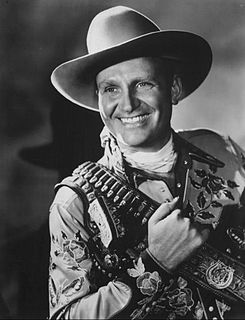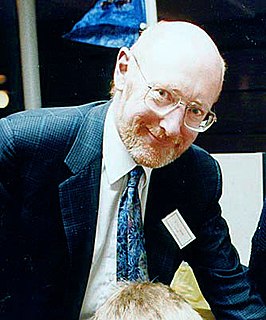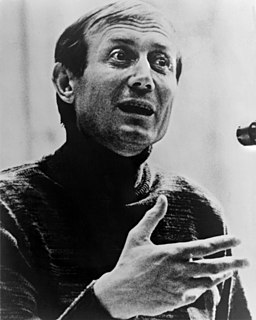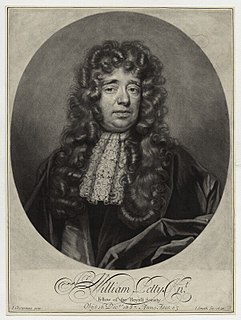A Quote by Henry David Thoreau
The Universal Soul, as it is called, has an interest in the stacking of hay, the foddering of cattle, and the draining of peat-meadows.
Related Quotes
I was 12 when I ordered my first guitar out of the worn and discolored pages of the Sears and Roebuck catalog. The story that I bought it on the installment plan is untrue, the invention of a Hollywood press agent. Local color. I paid cash, $8, money I had saved as a hired hand on my uncle Calvin's farm, baling and stacking hay. Prairie hay, used as feed for the cattle in winter. It was mean work for a wiry boy, but ambition made me strong.
The technologies which have had the most profound effects on human life are usually simple. A good example of a simple technology with profound historical consequences is hay. Nobody knows who invented hay, the idea of cutting grass in the autumn and storing it in large enough quantities to keep horses and cows alive through the winter. All we know is that the technology of hay was unknown to the Roman Empire but was known to every village of medieval Europe. Like many other crucially important technologies, hay emerged anonymously during the so-called Dark Ages.
I do not like poems that resemble hay compressed into a geometrically perfect cube. I like it when the hay, unkempt, uncombed, with dry berries mixed in it, thrown together gaily and freely, bounces along atop some truck-and more, if there are some lovely and healthy lasses atop the hay-and better yet if the branches catch at the hay, and some of it tumbles to the road.
To me, the essence of keeping the soul nourished is obedience to one's conscience. I don't think that the soul can be nourished unless people have a strong sense of conscience that they have educated and developed and soaked in the universal and timeless principles of integrity and service. This way, the individual's soul becomes part of the universal soul of service, contribution, and making a difference.
It were good to know how much hay an acre of every sort will bear; how many cattle the same weight of each sort of hay will feed and fatten; what quantity of grain and other commodities the same acre will bear in one, three or seven years; unto what use each soil is proper; all which particulars I call intrinsic value, for there is also another value merely accidental or extrinsic.
I was 12 when I ordered my first guitar out of the worn and discolored pages of a Sears, Roebuck catalog. The story that I bought it on the installment plan is untrue, the invention of a Hollywood press agent. Local color. I paid cash, $8, money I had saved as a hired hand on my uncle Calvin's farm, baling and stacking hay.
When loud by landside streamlets gush,
And clear in the greenwood quires the thrush,
With sun on the meadows
And songs in the shadows
Comes again to me
The gift of the tongues of the lea,
The gift of the tongues of meadows.
So when the earth is alive with gods,
And the lusty ploughman breaks the sod,
And the grass sings in the meadows,
And the flowers smile in the shadows,
Sits my heart at ease,
Hearing the song of the leas,
Singing the songs of the meadows.
Who you really are, is an immaterial soul and the body is an external thing that's sort of an encrustation your soul. So this has important implications for Plotinus' ethics, because his ethics are basically all about encouraging us to turn away from the body and turn towards these higher principles, so universal soul, universal intellect and ultimately the One.
































